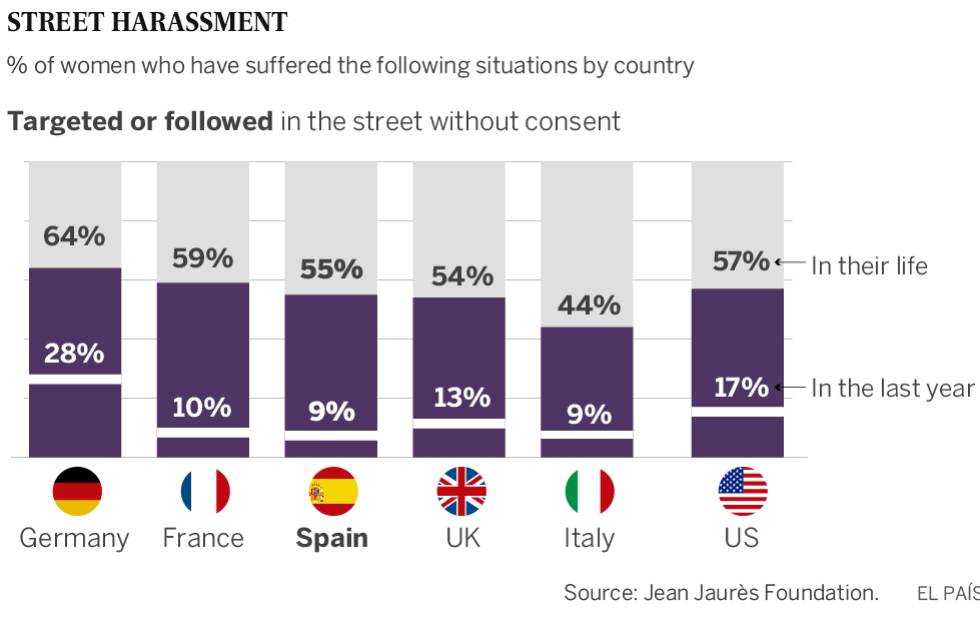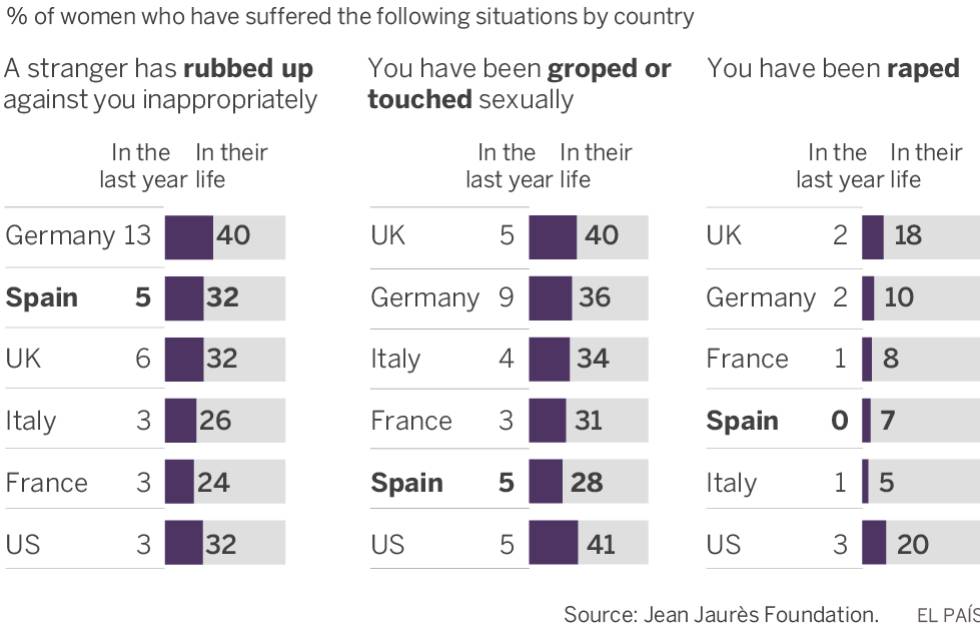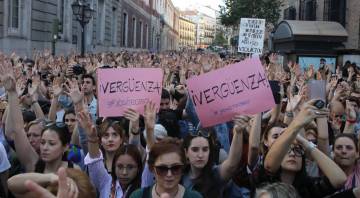Spain tops list for levels of verbal street harassment, study finds
A poll shows women in the country are targeted more by “disrespectful” behavior than in France, Italy, German, the UK and the US
Paris

Street harassment is a reality for many women. GETTY
A survey carried out in five EU countries and the United States rates Spain as the worst offender for street harassment against women. The poll showed that more women in Spain have been the targets of “disrespectful” behavior and sexist insults than women in Germany, France, Italy, the UK or the US.
But Spain ranked below average for physical aggression, according to a survey conducted by Ifop, an international market research group, for the Jean-Jaurès Foundation and the European Foundation of Progressive Studies.

Among Spanish respondents, 92% said they had experienced some kind of verbal or physical aggression of a sexual nature at some point in their lives. The figures drop significantly for the last 12 months, a fact that experts view as evidence that the #MeToo movement could be having an effect.
“There is now greater awareness about what is acceptable and what is not for women in public spaces,” says François Kraus, policy director at the Ifop Institute and the person who was in charge of the survey, which polled more than 6,000 women in six countries.
The study comes at a time when street harassment has become a subject of public debate. In France, a new law was passed in the summer that set out fines for harassers.

According to the results of the survey, 86% of Spanish women have put up with whistling on the street at some point in their lives, compared with the European average of 65% and the US average of 70%. And 76% of Spanish women reported getting stares, compared with the European average of 62%. Also, 50% of women in Spain said they had been the targets of sexual gestures, compared with the European average of 36%.
Statistics show that these figures have dropped in Spain the last 12 months: by 23% in the case of whistling, and by 8% in the case of rude gestures, but they remain above the European average.
As for physical assault and rape, the statistics are similar or lower than those in other countries. Asked if they had ever been touched without consent in a public space, the European average was 34%, while in Spain it was 28%. And 7% of women in Spain reported having been raped, compared with 10% in Europe and 20% in the US.
“What is relatively reassuring is that this sexist climate in Spain does not translate into more cases of physical violence than in other countries,” said Kraus. “Street harassment against women in Spain is above all verbal.”

Kraus added that the study did not take into account the impact of specific cases such as La Manada, a gang-rape in Pamplona that galvanized public opinion in Spain.
Across all countries, younger women are more likely to be the targets of street harassment. A total of 63% of Spanish respondents under 25 years of age said they had been whistled at in the last 12 months, compared with the Spanish average of 23%. This trend is visible in all countries included in the study, said Kraus, because there is “greater vulnerability at the beginning of one’s adult age.” Kraus added that it is also a “structural” issue, because younger women are more often in public spaces, making them more likely to become targets.
Even though whistles and insults are less serious than physical aggression, it still has a significant impact on women because it limits their freedom of movement in public spaces, said Kraus. “It makes it difficult for them to fully participate in a public space that is dominated by men,” he said.
English version by Susana Urra.






































No hay comentarios:
Publicar un comentario